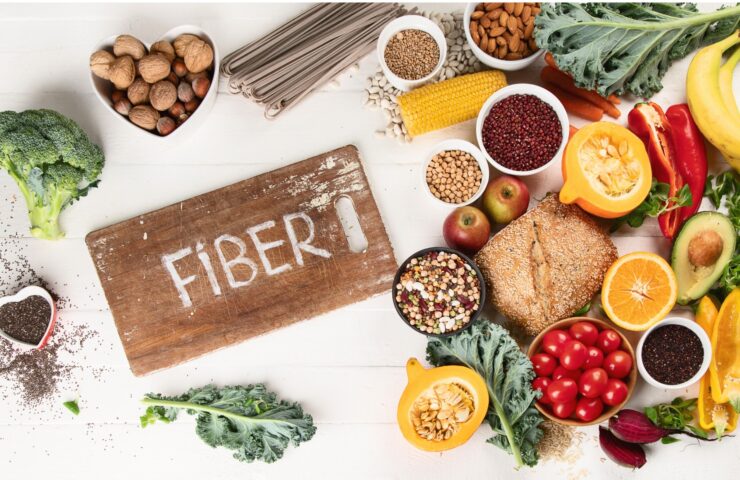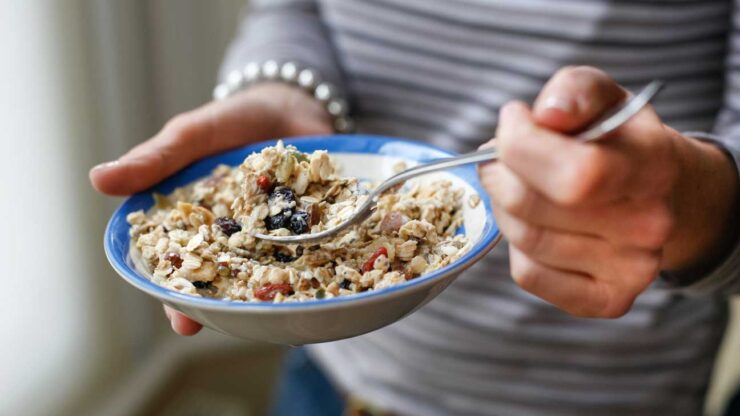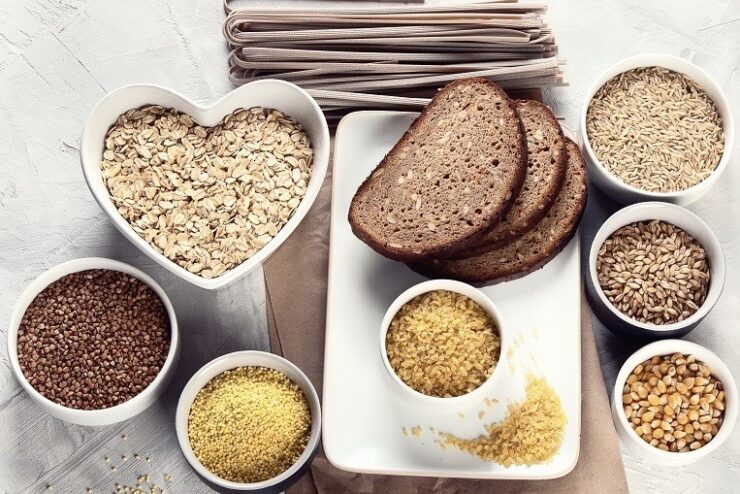It’s good to take fiber, but it can be confusing to know when is best for you. A lot of people wonder if they should eat more fiber in the morning or at night. Let’s look at what research says about how eating fiber works for both you and your body. We’ll also help you figure out if it’s better to take fiber in the morning or at night.
Why Fiber

A high-fiber diet is an important part of a healthy lifestyle. Fiber helps to support digestive health, lower cholesterol levels and promote weight loss. Unfortunately, the average adult only eats about 15 grams of fiber per day, which falls short of the recommended intake of 25–38 grams per day.
If you’re not getting enough fiber in your diet, no need to worry! It’s possible to make small changes to your daily routine that will help increase your dietary fiber intake.
When you eat the right amount of fiber, it can help your digestive system get everything out of your food so you stay healthy. Fiber helps keep constipation away, keeps blood sugar steady and cholesterol low, and can lower your risk for heart disease.
You probably know that high-fiber diets are linked to better health, but did you also know that if you’re not eating enough fiber, it’s bad for you? A low-fiber diet increases your chances of having serious diseases like diabetes and cancer. And switching from a low fiber diet to a high one may even reverse many of these negative effects we just mentioned!
Most people aren’t eating nearly as much dietary fiber as they should. One survey found that the average adult only eats about 15 grams of fiber per day, but they should be eating closer to 30-38 grams each day instead. So, why aren’t you getting enough?
A lot of it has to do with lifestyle. If you’re not seeing the bathroom right after meals or are trying to cut back on your fruit intake, then you probably need more fiber in your diet!
Side Effects of Not Enough Fiber

If you don’t eat enough fiber, then that can have some pretty serious side effects on your health. So it’s important to try to get more dietary fiber into your diet each day. Many people think that they need to start taking a fiber supplement or eating high-fiber cereals instead of fruits and veggies.
But research has shown that this is not the best way to increase your daily fiber intake! Some studies have even found that these types of supplements are linked with heart disease in patients with Type 2 diabetes including those who are already at risk for the disease.
So how else can you get more fiber? One study found that people who ate whole grains every day had significantly lower inflammation compared to those eating refined grains on a daily basis.
Whole vs Refined Foods

Refined carbs lack the fiber, minerals, and vitamins that whole grain products have. In fact, studies have shown that eating more whole grains can improve blood sugar control in people with diabetes while also lowering their risk for heart disease.
Whole grains are also linked to weight loss and a healthier waist circumference compared to processed carbohydrates! Plus, there’s some evidence that shows whole grains can help prevent metabolic syndrome which is a group of symptoms that includes belly fat, high cholesterol, high blood pressure, and insulin resistance or pre-diabetes.
So if you’re really trying to increase your dietary fiber intake, then try adding more fruits, veggies, and nuts into your diet too! It might take some time to make these changes, but you can do it! Get rid of refined foods and replace them with whole-grain options. To help you out, we’ve put together a chart below that shows the fiber content for one serving of some common food sources:
Table 1 – Contribution of selected foods to dietary fiber intake
| Fiber content per serving | (g) |
| Cooked beans and peas | 14 |
| Lentils | 18 |
| Black-eyed peas | 15 |
| Split peas | 30 |
| Chili con came | 16 |
| Kidney beans | 20 |
| Chickpeas | 22 |
| Pinto beans | 36 |
| Baked potato | 3.8 |
| Sweet potatoes | 10 |
| Rice cakes, white | 2.3 |
| Popcorn | 3.2 |
| Apple | 1 |
| Banana | 3 |
| Pineapple | 5 |
| Pear | 5 |
| Orange Watermelon | 7 |
| Grapes, seedless | 7 |
| Raisins, seedless | 2.5 |
| Peanuts | 4 |
| Almonds | 21 |
| Cashews | 19 |
High-fiber diets can help keep your digestive system healthy and give you a significant amount of health benefits. Eating whole foods daily increases dietary fiber intake more than taking supplement sources alone.
The best way to increase your daily fiber intake is by swapping out processed carbohydrates for whole grains in different food groups every day! Fiber content per serving was provided for common foods in Table 1 above.
So, is it better to take fiber in the morning or at night? We think that you should take fiber throughout the day so that it lasts all day long! And remember, you can get more fiber by eating whole grains instead of refined ones.
Things to note about fiber intake:
- Fiber is an important part of any diet. It keeps the digestive system healthy and can prevent chronic diseases like diabetes or heart disease.
- Many people who want to increase their fiber intake do it by taking supplements rather than making dietary changes. But diets rich in whole grains are more effective at increasing daily fiber intake!
- Whole grains are healthier than refined carbohydrates because they contain fiber, minerals, and vitamins that processed carbs lack.
- Too much fiber has side effects like bloating, gas, and an upset stomach if eaten in large amounts; but eating whole foods helps with this problem since less is consumed each day compared to supplement sources alone.
- Whole grains help reduce inflammation and control blood sugar levels
- They increase satiety (feelings of fullness) and may even help with weight loss.
- Whole grains may help prevent metabolic syndrome which is a group of symptoms that includes belly fat, high cholesterol, high blood pressure, and insulin resistance, or pre-diabetes.
- Start making changes to your diet by swapping refined carbohydrates for whole-grain options as often as possible! Take fiber throughout the day instead of morning or evening.

